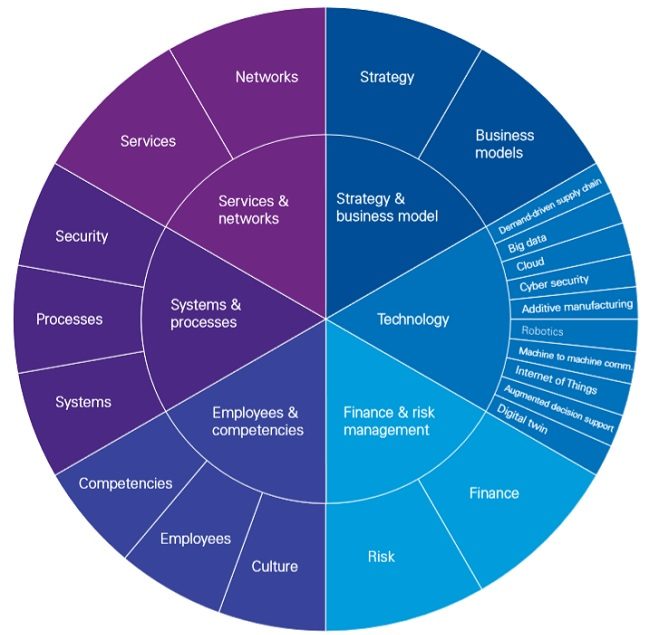Plugging Midlands manufacturers into the fourth industrial revolution

When the canal age came to Birmingham in the 18th century, there was no notion that one day in the future they would be seen as attractive places for leisure and to live.
You have to be up very early or very late to be more than a couple of minutes’ away from being overtaken by a runner or a cyclist, heading towards their own personal finishing line.
Occasionally that runner is Nick Harrison, whose day job as a partner in KPMG’s management consulting business heading up its industrial manufacturing team requires him to think about what the direct and indirect consequences of technological change will be.

Nick Harrison, KPMG
The fourth industrial revolution, often labelled Industry 4.0, is an umbrella term for the huge changes being brought about by cyber-physical systems that are bringing us delivery drones and driverless cars.
One of its central challenges is how are suppliers and customers connected seamlessly.
“What I am seeing is a lot more customer-driven demand, rather than supplier push,” said Harrison. “I think we will see a flip where the customer is demanding an almost-customised service that the supply chain will have to meet.
“If you look at retail, and Amazon, we as customers are expecting a bespoke service and we want it the next day. In corporate, it doesn’t work like that.
“Disruption is affecting even manufacturers. The winners will be the ones that can see what the next three-to-five years look like from a demand perspective.”
Customers wanting clean energy, or at least hybrid vehicles, are driving energy changes in the automotive sector. Manufacturers are trying to address how they adapt to the move from internal combustion engines to electric vehicles, and the related fast decline in diesel.
Figures for the first three months of the year show the sale of diesel cars in the UK was down by one-third while alternatively-fuelled vehicle (AFV) sales increased by 10%.
In the first quarter of 2017, 11 diesel cars were registered for every one AFV. This year the ratio was below seven-to-one.
But this throws up a number of questions for Harrison.
He asked: “If you manufacture cars and you can see the trends but you are tied in to the technology of an internal combustion engine, when and how do you make the flip?
“Tier one, two and three suppliers need to be investing in technology, but how can they do that when they have existing demand?
“And how do the banks fit in, and when do they turn the taps off on old technology?”
How vehicles are powered in the future feels like a semantic discussion, however, compared with the seismic changes that mobility as a service will bring.
To the Uber generation, the mix of transport on demand with connected and autonomous vehicles is a potent one.
“Vehicle ownership will change and it will change quite quickly,” said Harrison.
“Who the players will be isn’t yet clear – but this is a VHS/Betamax moment.”
There are so many stakeholders and interested parties, including manufacturers, insurers, the Government and its huge vehicle and fuel taxes, banks and technology companies.
“Everything we are using mobility-wise will change and all of the ancillary services will change alongside it,” he said. “Some people say it’s too futuristic, but it’s already here.”
As a Nottingham Forest season ticket holder who can recall the European Cup being brought to his junior school, Harrison has a fortnightly reminder at the City Ground that being a market leader is not a permanent status.
He said: “I foresee large manufacturing businesses struggling because they are not agile enough to respond to those disruptions. They will either become niche players or they might not have a future.”

6 dimensions build the basis of i4.0’s principles (source: KPMG)
The applications of the technology are limited only by imagination – from 3D-printed trainers that perfectly fit your feet to delivery drones being able to target a specific square metre so you can receive suntan lotion while you are sat in the garden.
Midlands businesses will only be able to play a leading part in the opportunities that emerge from Industry 4.0 if there is better connectivity between academia, government and business groups, Harrison argued.
“How do you solve it?”, he asked. “My PhD from almost 20 years ago was all about building ecosystems, building clusters.”
Examples of collaborative working in the German state of Baden-Württemberg, the transformation of the textile industry in Italy, and the impact of the Cambridge cluster provide case studies in what is possible.
“Why don’t we have that for manufacturing in the Midlands, to create a hub and an ecosystem?,” he asked.

Boulton, Watt and Murdoch
Bemoaning the region’s lack of a modern-day industrialist to stand alongside James Watt, Matthew Boulton and William Murdoch, such as Sir James Dyson – “can we claim Lord Bamford?”, he asked – Harrison is searching for a figurehead to embody the strength of the manufacturing sector.
Perhaps one will emerge from the maelstrom of technological change.
“The winners will be the ones that see opportunity rather than risk and threat,” he said. “We need to get behind our businesses and help them think what it means for them.
“The successful businesses will have technology for the right reasons, good skills (they might not be the skills they need now), a customer-centric approach and will harness data to drive performance.
“Put all of that together and you have a really good business.”
With that, Harrison had to run, to get on an early-evening call to the United States. The canals will have to wait.
This interview is part of a Midlands Manufacturing profject with KPMG. To find out how to build and deploy your Industry 4.0 roadmap, visit kpmg.com/uk/industry-4-0








